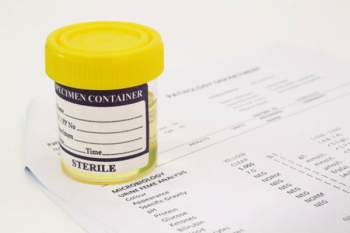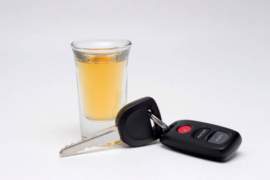
Understanding Urine Tests for BAC

Due to the inaccuracies in breathalyzer tests, more tests are available to be able to determine a correct blood alcohol concentration. These tests can confirm or contradict BAC readings from a breathalyzer, and may help or further incriminate an individual. One of these tests is the urine alcohol test.
Urine tests for alcohol function by testing for ethyl glucuronide in urine. Ethyl glucuronide is an ethanol alcohol that would be present in a urine sample of a person that has consumed an alcoholic beverage. Depending on the drinking patterns or behaviors of an individual, alcohol can be tested as far back as a week (and sometimes longer for a heavy drinker such as an alcoholic). This doesn't mean that if you drank on Saturday and got tested for urine at work on Monday that you'd be subject to being accused of drinking on the job. The longer time that passes with the alcohol in your system causes less to show, and the urine dilutes it as well.
Some employers choose to test their employees for alcohol ( in addition to or in place of drug testing) to be able to check if an employee has broken company guidelines. When detecting for alcohol, a urine alcohol test would show that alcohol was used within an 80 hour time period from the test, for a positive reading. Most employers that conduct alcohol urine tests, perform these tests at random. This prevents the employees from "preparing" for the test, such as abstaining from drinking for a certain time period, to provide negative results. Another use of urine alcohol tests is by parents testing their children. This may sound rare, but it actually is very common. There are kits available for home testing that provide parents to test their children to make sure they have not been drinking underage.
Because of easy accessibility to these tests, more and more parents are testing their children to keep them from trying to drink, or to confirm a suspicion. Adults can't escape these tests either, spouses, relatives, and friends are sometimes subject to these tests by loved ones if they are trying to abstain from alcohol. For example a family member may conduct this test on a recovering alcohol trying to remain sober. These tests may be part of the rehab protocol in addition to their testing, or just a suggestion to assist the person on their journey.
The most common use for urine alcohol testing is by law enforcement agencies after an individual has been arrested for Driving Under the Influence. These tests usually follow a breathalyzer test either at the police station or a hospital. They combine with a breathalyzer to assist in giving a genuine reading of a person's BAC level.
Urine alcohol tests are widely used by different organizations, groups, and people as a single or added measure of testing for alcohol in the urine of a human being. These tests have become more common over the years, and the means for testing have developed into more convenient kits that one can even use at home. This allows for almost anyone to monitor alcohol in a person's body, and determine whether that person has broken any rules, laws, or regulations.
NEXT: Refusing a BAC Test




















